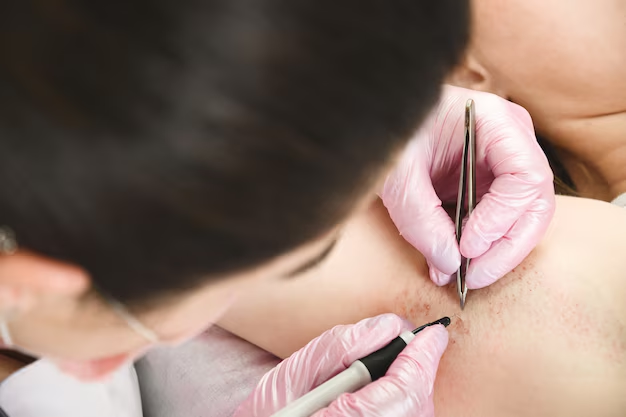How To Become A Dermatology Nurse Practitioner: Essential Degrees and Certifications
Embarking on a career as a Dermatology Nurse Practitioner (NP) is an exciting and rewarding path, offering specialized care in the field of skin health. To reach this professional milestone, several key educational and certification steps are necessary. Initially, aspiring dermatology NPs must earn a Bachelor of Science in Nursing (BSN), which serves as the foundation for a strong understanding of patient care. Following this, obtaining a registered nursing (RN) license is crucial and typically involves passing the NCLEX-RN examination. With these qualifications under their belt, aspiring dermatology NPs should pursue a Master's Degree in Nursing (MSN) or a Doctor of Nursing Practice (DNP), specializing in dermatology or a related subspecialty.
Beyond degrees, certification further solidifies a professional’s expertise. Pursuing a national certification as a Family Nurse Practitioner (FNP) or Adult-Gerontology Nurse Practitioner (AGNP) is a beneficial step, as these certifications provide a broad scope of practice necessary for specializing in dermatology. The Dermatology Nursing Certification offered by the Dermatology Nurses’ Association is also highly recommended, showcasing a focused commitment to this field. As healthcare continues to evolve, staying updated with the latest skills and knowledge through ongoing education can be invaluable for a successful career.
Pathway to Becoming a Dermatology NP:
- 🎓 Bachelor of Science in Nursing (BSN)
- 🩺 Registered Nursing (RN) License
- 📜 Master's Degree in Nursing (MSN) or Doctor of Nursing Practice (DNP)
- 🌍 Family Nurse Practitioner (FNP) or Adult-Gerontology Nurse Practitioner (AGNP) Certification
- 💉 Dermatology Nursing Certification
- 📚 Continuing Education and Specialized Training
